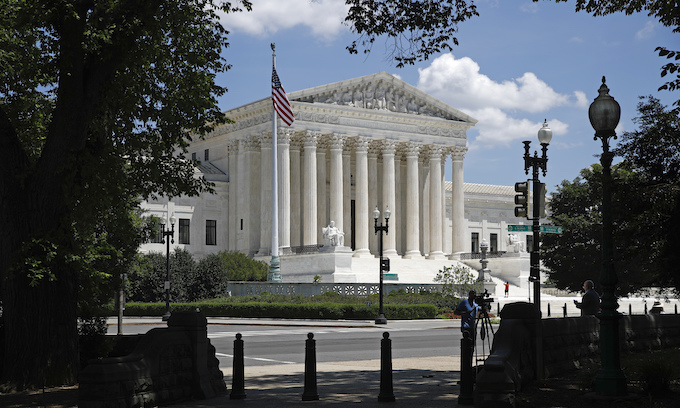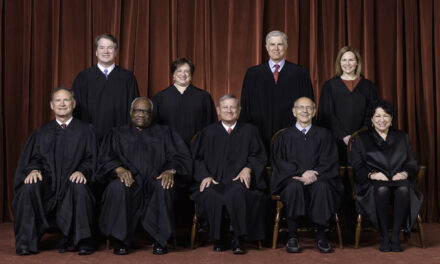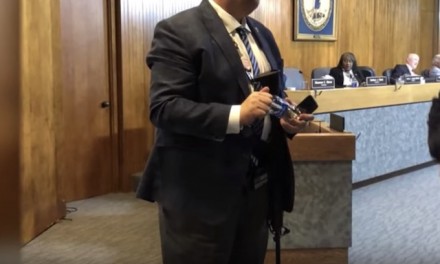The U.S. Supreme Court on Monday ruled that a doctrine allowing police to carry out searches without a warrant in some cases does not apply to entering private homes.
In a 9-0 decision, the court determined that police officers overstepped their bounds when they seized two handguns from the home of a Rhode Island man without a warrant after he had been involved in a heated argument with his wife.
Both liberal and conservative activists had advocated against the police position in the case, warning that upholding lower courts’ decisions would greatly expand the justifications for conducting warrantless searches.
In writing for the court in the case of Caniglia vs. Strom, Justice Clarence Thomas determined that the “community caretaking” exception — under which police can carry out warrantless searches if they are performing “community caretaking functions” — does not apply to entering private homes.
“The very core of the Fourth Amendment’s guarantee is the right of a person to retreat into his or her home and ‘there be free from unreasonable governmental intrusion,'” Thomas wrote.
In the case, petitioner Edward Caniglia placed a handgun on the dining room table and asked his wife to “shoot [him] and get it over with.” His wife instead left the home and spent the night at a hotel.
After she was unable to reach her husband by phone the next morning, she called the police to request a welfare check. The responding officers accompanied the wife to the home, where they encountered Caniglia on the porch. Believing he could pose a risk to himself or others, the officers called an ambulance.
Caniglia agreed to go to the hospital for a psychiatric evaluation on the condition that the officers not confiscate his firearms. But once he left, the court said, the officers nonetheless located and seized his guns.
Caniglia sued, claiming that the officers had entered his home and seized him and his firearms without a warrant in violation of the Fourth Amendment.
Lower courts found in favor of the officers, basing their decisions on a theory that the removal of Caniglia and his firearms from his home was justified by the community caretaking exception to warrant requirements.
The exception states that police can, for instance, legally carry out a warrantless search of an impounded vehicle in the course of their civic duties. But that doctrine is “not an open-ended license to perform them anywhere,” Thomas wrote.
“What is reasonable for vehicles is different from what is reasonable for homes,” he said.
In a rare instance of agreement, both the American Civil Liberties Union and the American Conservative Union Foundation joined the libertarian Cato Institute in a joint brief urging the court to restrict the community caretaking exception “to its historic vehicle-related origins.”
Copyright 2021 United Press International, Inc. (UPI). Any reproduction, republication, redistribution and/or modification of any UPI content is expressly prohibited without UPI’s prior written consent.
—-
This content is published through a licensing agreement with Acquire Media using its NewsEdge technology.



















In this case, I completely agree with the Supreme Court. The guy was taken for a psychiatric evaluation. The police in the meantime could have gotten a warrant, as they had plenty of time to do so.
Wow.. TWO cases where the scotus has shown brains AND BALLS>.. Wonders will never cease.
So now you are only an obama judge away.
“The very core of the Fourth Amendment’s guarantee is the right of a person to retreat into his or her home
and ‘there be free from unreasonable governmental intrusion,’” Thomas wrote.
We don’t yet live in a Socialist Democrat party State Dictatorship.
Thank GOD for the U.S. Constitution, even if the Democrat Party only treats it as irrelevant to their agendas. 👿
Democrat’s response to this ruling “That #@%* constitution!”